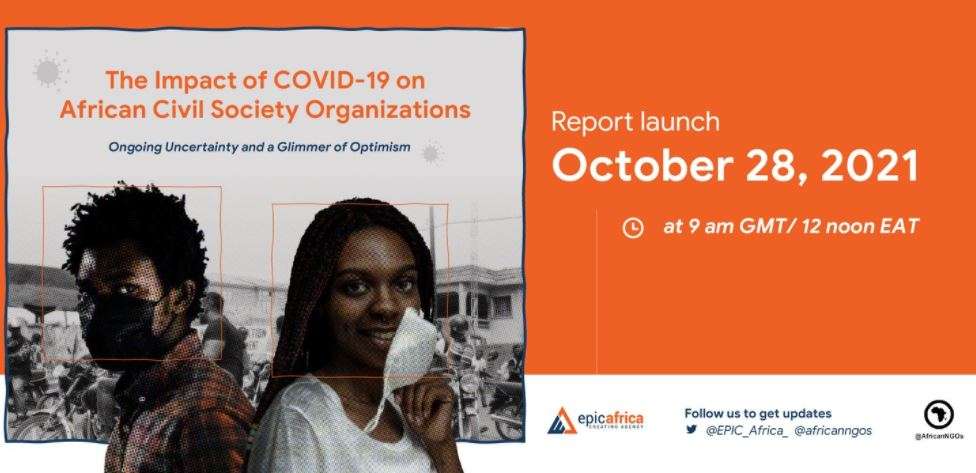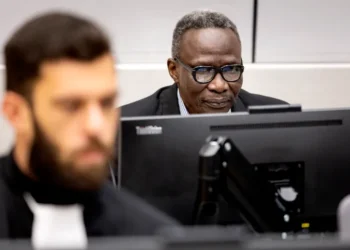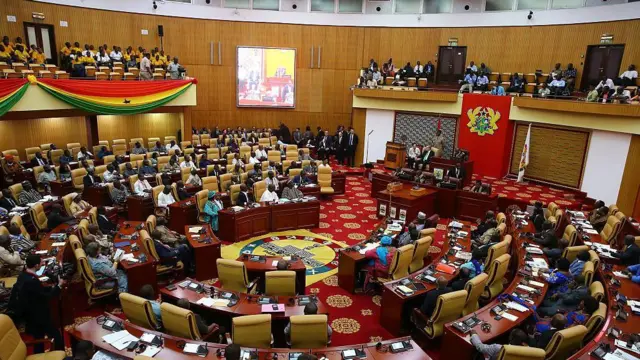Significant losses of funding have limited the ability of African Civil Society Organizations (CSOs) to meet the needs of their communities at a time when COVID-19 has pushed demand for their services to unprecedented high levels, a new report released today by EPIC-Africa and @AfricanNGOs reveals.
Despite these challenges, the report highlights that African CSOs have taken on expanded roles during the COVID-19 pandemic, with over 80% of the organizations surveyed introducing new program activities to respond to the social and economic needs of the most vulnerable populations.
Yet, CSOs themselves have been hard hit by the pandemic and face considerable uncertainty as the global crisis deepens, the report states. Of the organizations surveyed, 68.1% experienced a loss of funding since the start of the pandemic (up from 55% in 2020) and only 8.4% received any funding support from a government emergency relief fund in their country.
Lack of funding for CSOs
This lack of funding, according to the report, has resulted in citizens being denied vital services such as educational programs for children and adolescents, and life-saving medication for HIV+ people. Lack of funding also affected the provision of shelter for victims of domestic violence, rape and other atrocities, as well as the muting of citizens’ voices in matters of social and economic justice.
The new report found ongoing uncertainty yet also a glimmer of optimism in resilience shown by African civil society organizations in response to the COVID-19 pandemic. It called on governments and funders to partner with African CSOs to better serve communities.
“The findings of this report make it crystal clear that governments and funders must recognize, partner with and support African CSOs, whose actions are critical to driving a comprehensive response to COVID-19. Since the onset of the pandemic, African CSOs have demonstrated great adaptive ability and creativity in meeting the needs of their communities, and this makes us optimistic that the sector can recover and build a better future”.
EPIC-Africa Co-founder, Rose Maruru
Too important to fail
The report notes a marked increase in demand for the services that African CSOs provide, from 31.5% in 2020 to 40.7% in 2021. In response to the pandemic, 83.4% introduced new program activities, 27.6% increased their programming to deal with the impact of COVID-19, and 34.3% changed the focus of their programs to COVID-19 from other areas.

As the report shows, CSOs are providing these services under strain, with 87.1% reporting increased anxiety and stress levels among staff. The situation is made worse by long-term under-resourcing and restricted civic space in many countries that pre-date the pandemic.
“COVID-19 has laid bare some of the major challenges facing African CSOs. This report is an opportunity to think through the solutions that will ensure a post-pandemic future with resilient and sustainable CSOs. With millions of people depending on the vital advocacy and daily services provided by African CSOs, the sector is simply too important to fail”.
David Barnard, Co-author of the report
The role of funders
The new report also includes the findings of a complementary survey of funders of African CSOs, which sought to understand how the pandemic impacted their organizations and the implications for their future engagement with African CSOs. The findings show that many funders have demonstrated unprecedented flexibility, provided additional resources, and in some cases, ceded more decision-making power to their grantees.
When asked to describe the lessons of COVID-19 and what funders can do to enable CSOs to recover and emerge stronger from the crisis, one funder stressed the importance of general support: “Multi-year flexible grants gave many of our partners the space to react to changing situations”.
According to the Funder, “this past year has highlighted the importance of investing in infrastructure; partners benefit from having additional funds to build out their infrastructure so they can remain resilient in changing environments”.
A way forward
According to the report, African CSOs acknowledged that the sector needs to be better organized, collaborate more, and build more robust networks and platforms. The report notes that COVID-19 has ignited an inflection point and recommends that funders, governments and CSOs carry out initiatives to revitalize the sector, with support for institution-building, including strengthening infrastructure for local philanthropy.
It recommends that governments include CSOs in national emergency responses and long-term development efforts. CSOs are also to strive to diversify funding and explore new organizational and funding models.
The report, ‘The Impact of COVID-19 on African Civil Society Organizations: Ongoing Uncertainty and a Glimmer of Optimism’, is based on a survey of 1,039 CSOs in 46 African countries between June and July 2021. It follows the groups’ 2020 report, which surveyed African CSOs in the early days of the pandemic.
The report aimed at capturing the ongoing impact of the pandemic on African CSOs, how CSOs are responding, and emerging trends and lessons that may help to predict and prepare for the future. It also aimed to acquire information at the sectoral and regional levels to conduct pertinent cross-sector analyses and present a more granular picture of how African CSOs are coping.





















